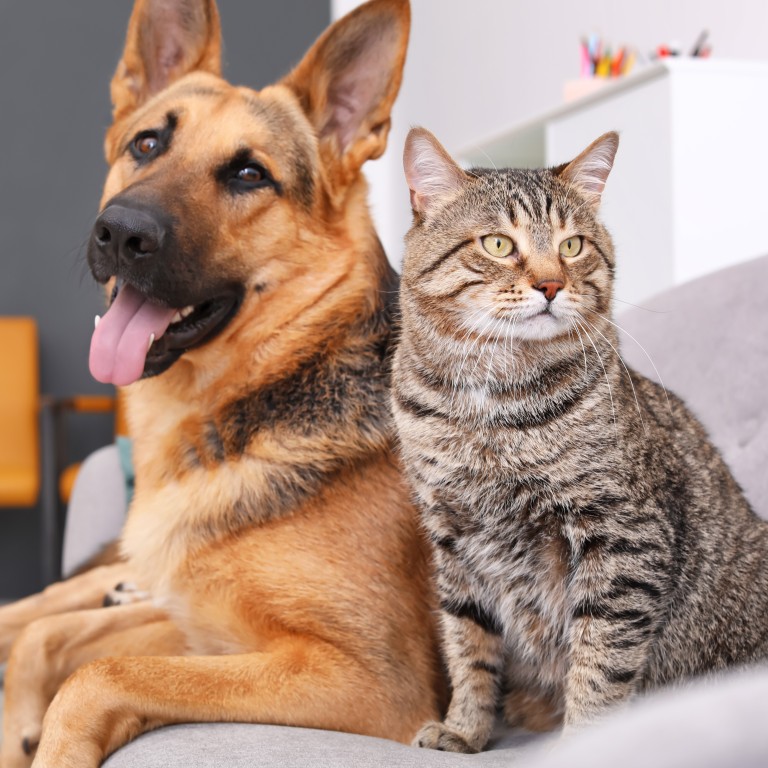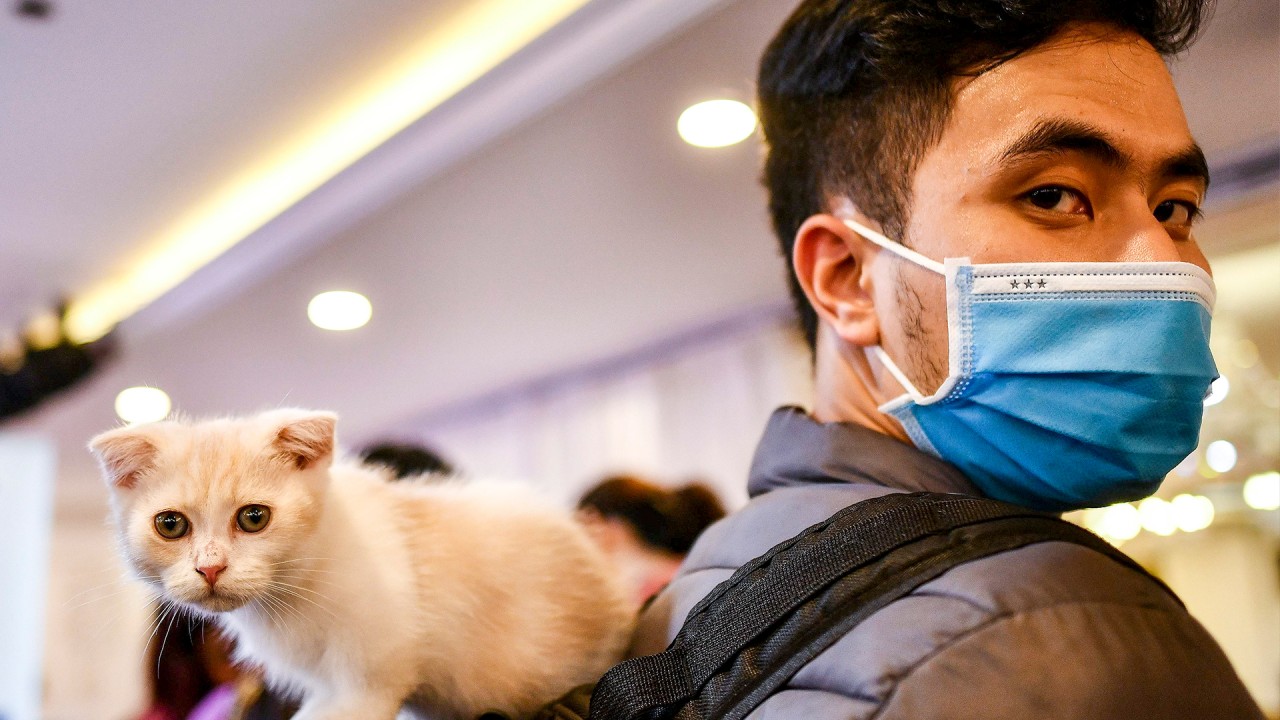
Can pets catch Covid-19? Hong Kong’s City University begins testing animals for coronavirus amid owners’ concerns
- The best way to protect pets is for owners to stay safe and avoid infection, veterinary school dean says
- More than 1,300 applicants for 30 places at vet school, which aims to be among top 20 worldwide
Its veterinary diagnostic laboratory began a pilot testing scheme last Monday, with samples being collected by local veterinarians. These are the same Covid-19 tests used for humans, said Professor Nikolaus Osterrieder, the new dean of CityU’s college of veterinary medicine and life sciences.
The surge in human infections in July has seen the number of confirmed cases in Hong Kong rise to 3,396, with 33 deaths.
The city’s third wave of infections has resulted in more animal owners, especially those who contracted Covid-19 or were close contacts of the infected, sending their pets for testing.

04:29
Pets’ best Covid-19 defence is when owners protect themselves, says animal health expert
The animals include cats, dogs and chinchillas, as well as 13 pet hamsters from a single household. Those that test positive will be isolated from the other animals.
Veteran virologist Osterrieder, 55, who became dean a month ago, told the Post he believes the city’s official testing capacity for pets is adequate, with no sign that infections are getting out of control.
“I believe the authorities will keep monitoring the needs, and laboratories including the one at CityU are ready to provide additional support if necessary,” he added.
Previously associate dean for research at Freie Universität Berlin’s department of veterinary medicine, he said Hong Kong’s current quarantine strategy for pets was sound, unlike in some places where pets have been left to recover at their owner’s homes.

Although the probability of transmission of the coronavirus from humans to animals was low, Hong Kong’s approach erred on the side of caution, he said.
“I would consider it a loophole if you house in a flat, an infected human with a pet,” he said.
The best way to protect pets, he said, was for owners to protect themselves by staying away from other people, wearing face masks, washing their hands and not getting infected.
In an interview with the Post, Osterrieder also spoke about his hopes to make CityU’s vet school, which runs Hong Kong’s sole undergraduate programme in veterinary medicine, one of the top 20 in the world.
What are coronavirus risks from riding trains? A new Chinese study analyses passenger data
Applications for the coming academic year were oversubscribed by 44 times, with more than 1,300 applicants from Hong Kong and overseas vying for 30 places, up from last year’s intake of 24.
Of the applicants, 274 named the course as their first choice, a 50 per cent increase from last year.
The six-year programme began in 2017, with its first batch of 12 new vets due to graduate in 2023. Osterrieder was confident they would land jobs as “there was never a real surplus of veterinarians”.
The school receives government funding based on the number of students it has, and will continue to seek support from donors, as the programme is costly to run.
Given the pandemic, some classes may be held online during the upcoming semester, with face-to-face activities to be held “where possible”, including those involving livestock as well as field trips and lab work.

03:02
Hong Kong’s first makeshift Covid-19 hospital in operation amid third wave of coronavirus crisis
Osterrieder said he was not overly worried about the potential effects of the new national security law in Hong Kong on academic freedom and concerns that universities might see donations dip due to student participation in anti-government demonstrations that began in June last year.
“All I can say is, I work hard every day and I do what humans do best, and that is, adapt to situations,” he said. “I am not driven by anxiety. If this plan doesn’t work, I use a different plan.”
For now, he is focused on a goal he has set for himself and the school.
“We are very ambitious. Within two decades, we want to be among the 20 best veterinary schools in the world,” he said. “I do not think this is beyond our reach, we really want to be very special and very much in the forefront.”

